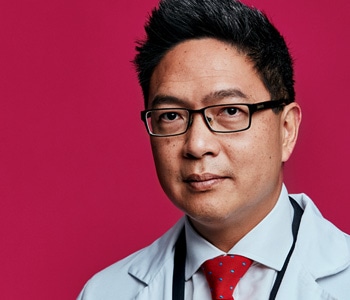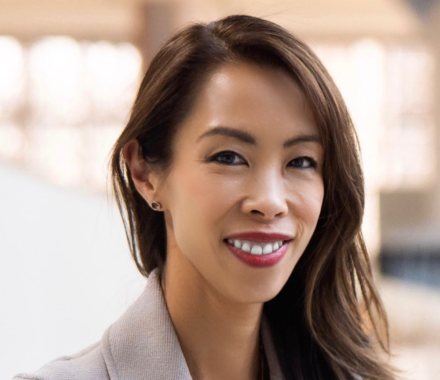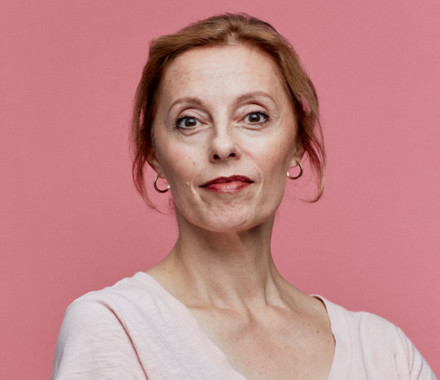
Professor Elgene Lim, MD, PhD
Connie Johnson Breast Cancer Research Laboratory, The Garvan Institute of Medical Research, Kinghorn Cancer Centre, St Vincent’s Hospital
You have returned to the top of the page.
We launched the Endowed Chairs Program, significant 10 year research grants for the bright stars in Australian breast cancer research.
Funded by money raised entirely by the Australian public, the Endowed Chairs Program comprises two long-term 10 year research grants for a total value of $5 million each, which includes a co-contribution from the recipients’ host institutions.
A new and unique concept for breast cancer research in Australia, Endowed Chairs are designed to keep mid-career researchers in Australia and focused on research that will lead to the next major breakthrough.
The longer term duration of Endowed Chairs will not only give greater stability to emerging leaders in breast cancer research, but it will also allow researchers to advance ground breaking projects, and bring the benefits of research to affected women and men much faster.

Connie Johnson Breast Cancer Research Laboratory, The Garvan Institute of Medical Research, Kinghorn Cancer Centre, St Vincent’s Hospital

Translational Breast Cancer Genomics and Therapeutics Laboratory, Peter MacCallum Cancer Centre
Connie Johnson Breast Cancer Research Laboratory, The Garvan Institute of Medical Research, Kinghorn Cancer Centre, St Vincent’s Hospital
Professor Elgene Lim is a medical oncologist and researcher with a focus on breast cancer research and treatment.
A major focus of his lab is overcoming resistance to the hormone treatments used on the largest subtype of breast cancer – estrogen receptor positive breast cancer. His research program will look at new ways to overcome hormone resistance and to sensitise breast cancer to hormone therapies.
Professor Lim’s research is fundamentally patient focused. He believes that no one individual or a specific technology has the answer; collaboration between scientists, doctors and patients is the key to success in establishing a pipeline from discovery right through to clinical trials.
Already an established leader in his field, Professor Lim’s research program will enable a better understanding of the biology of treatment resistant breast cancer and facilitate the rapid translation of new therapeutic strategies from the laboratory into clinical trials – realising the philosophy of bench to bedside – and making sure the benefits are felt by those directly impacted by breast cancer.
Translational Breast Cancer Genomics and Therapeutics Laboratory, Peter MacCallum Cancer Centre
Professor Sherene Loi is a breast cancer researcher and also a medical oncologist specialising in the treatment of breast cancer.
Professor Loi leads a lab that focuses on the genomic and immune interface in breast cancer patients. Her main interest is the development of novel therapeutics and her current focus is the development of combination targeted and immune therapies for breast cancer patients.
She aims to develop new therapies for breast cancer, particularly for the metastatic stage of the disease, such as effective immunotherapies which could improve survival as well as quality of life.
Immunotherapy is a whole new treatment approach for breast cancer patients (and cancer patients in general) by targeting the immune system rather than the tumour. These treatments may be less toxic, providing the chance for better quality of life as it delays the need for chemotherapy in metastatic breast cancer and potentially a higher chance of longer-lasting remission.
Also as part of her program, Professor Loi will also investigate if promising new drugs are working in breast cancer through an active clinical trial program at the Peter MacCallum and the Victorian Comprehensive Cancer Centres which will allow Australian women access to promising new therapies.
The National Breast Cancer Foundation announced their $3 million contribution to a $5 million co-investment with the University of Sydney in its first 10-Year Chair in Breast Cancer Prevention, as new data shows breast cancer incidence has consistently increased over time, now outpacing population growth for the first time in Australia.
Professor Nehmat Houssami has been selected as the new 10-year Prevention Chair, focusing on a multi-pronged approach to research encompassing primary, secondary and tertiary prevention.
This type of sustained funding is essential for breakthroughs in breast cancer research and for NBCF to reach their goal of Zero Deaths from breast cancer.

Faculty of Medicine & Health, The University of Sydney
Professor Nehmat Houssami is a breast cancer researcher and also a public health physician specialising in breast screening and prevention.
Professor Houssami’s cutting-edge research will take a broad approach to breast cancer prevention, including improving breast screening technologies to detect breast cancers earlier as well as improving surveillance, staging and prognostication in patients already diagnosed with breast cancer.
Professor Houssami’s initial focus will be planning to implement a large-scale breast screening trial using tomosynthesis (or 3D mammography) in comparison with standard screening. The proposed research collaboration with BreastScreen Australia will utilise an emerging technology in early detection, building on Professor Houssami’s work already completed in a pilot trial, indicating tomosynthesis increases detection of breast cancer. As early detection offers the best possible chances of survival to those breast cancer affects, this is a promising area for development.
An additional key area of Professor Houssami’s research will be monitoring women previously diagnosed with breast cancer for earlier detection of second or recurrent breast cancer through new and improved screening technology.
Professor Houssami said: “I’m proud to be awarded NBCF’s first Chair in Breast Cancer Prevention and support the organisation’s powerful ambition to end deaths from breast cancer.
“The 10-year funding model NBCF have selected provides me and my research team with the stability to undertake this priority-targeted research and builds on my findings as my research progresses over time.
“This multi-project program is important, as no individual strategy can make a significant dent in the burden of breast cancer, but rather addressing several areas in breast cancer screening and prevention will increase our chances of improving breast cancer outcomes.
“I am dedicated to advancing a comprehensive breast cancer research program that focuses on prevention and aims to reduce the impact of the condition on Australians.”